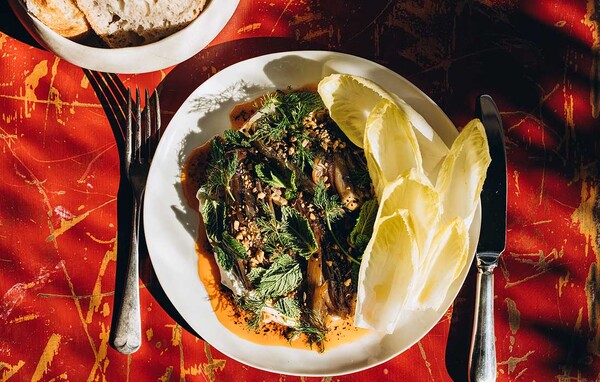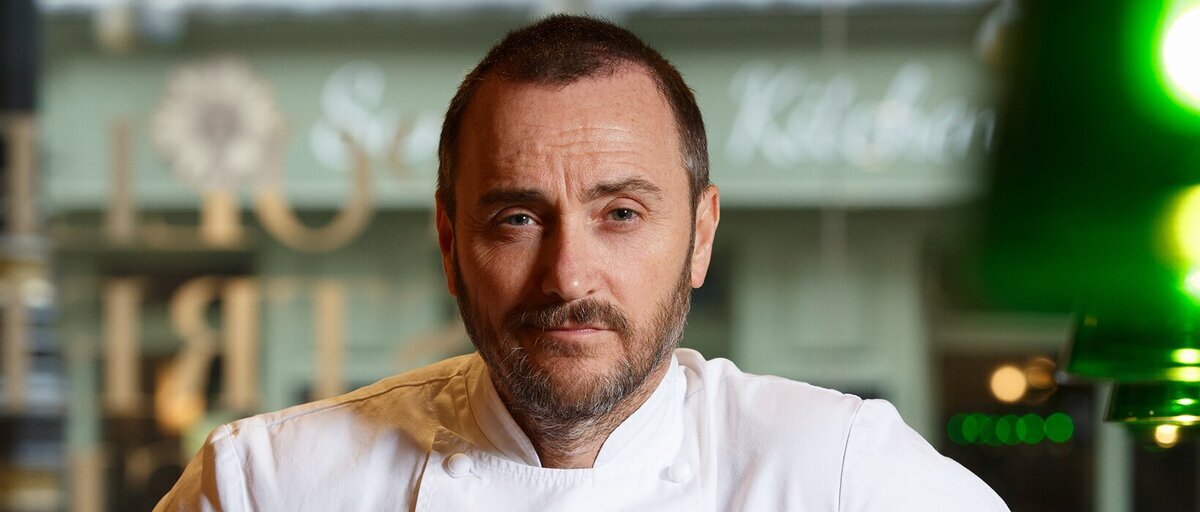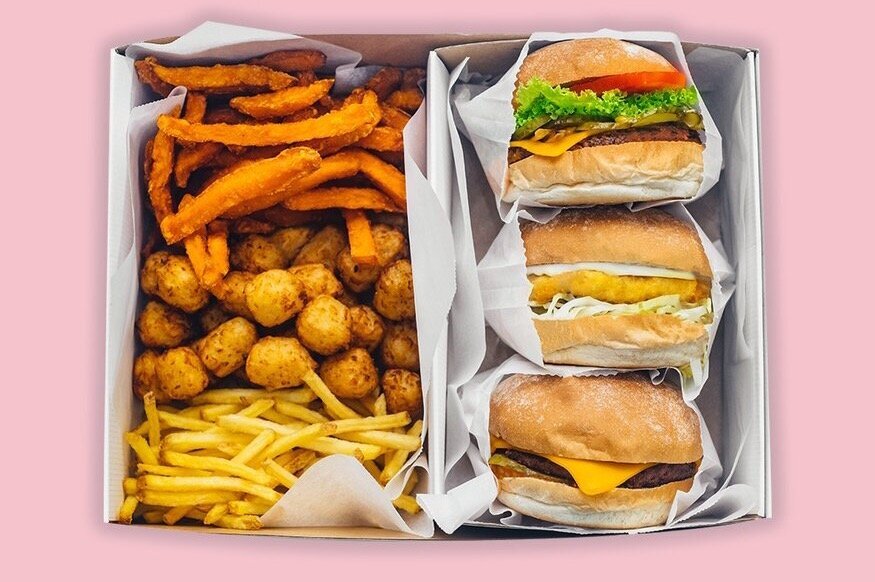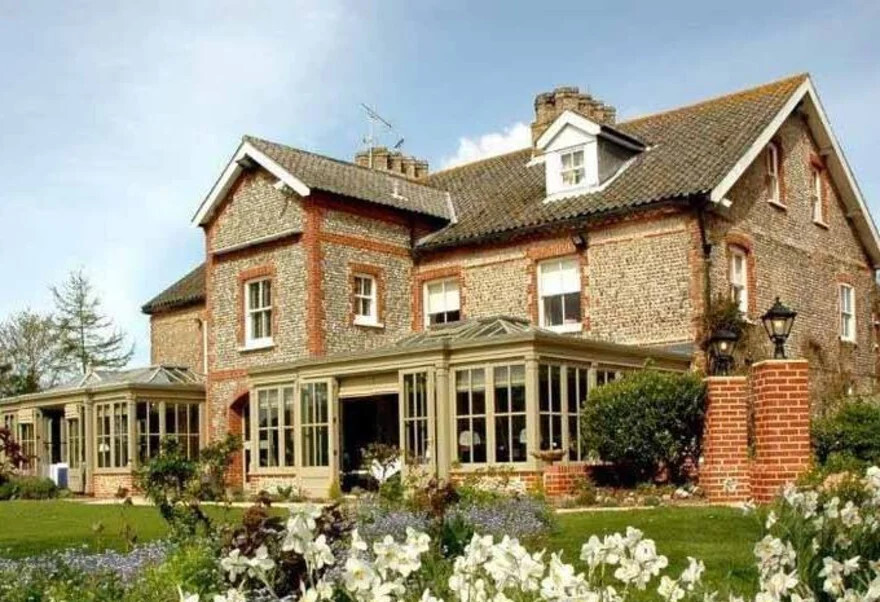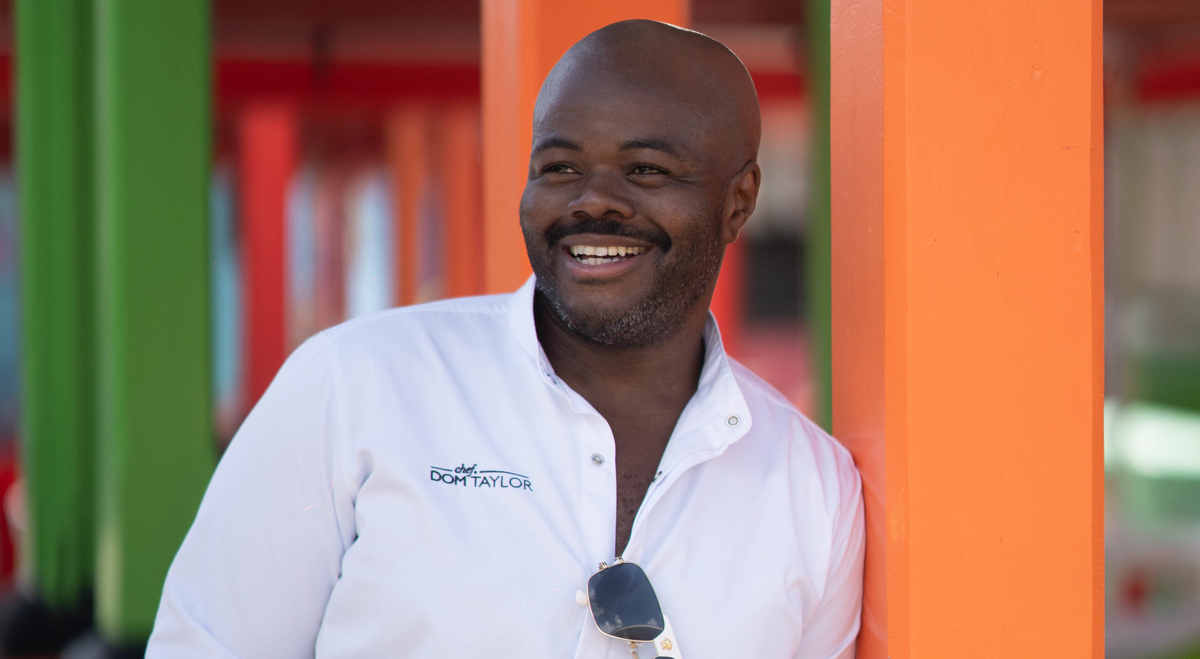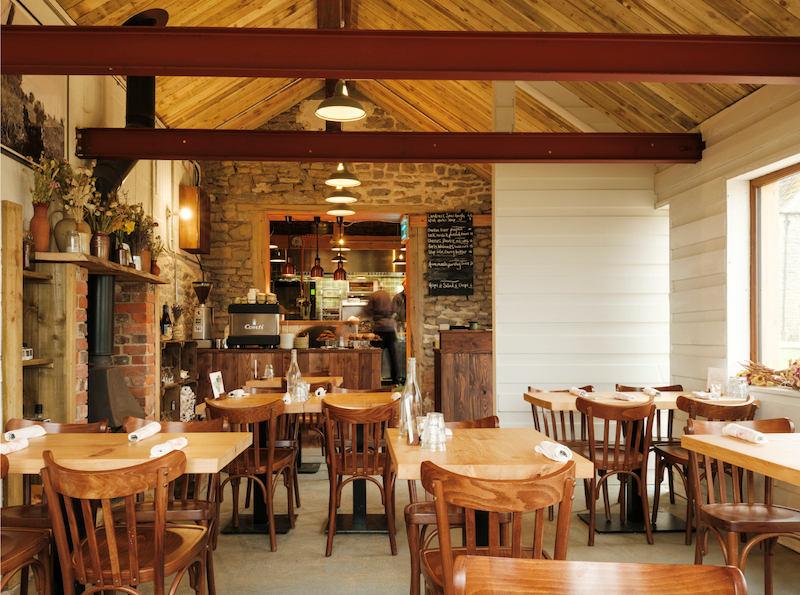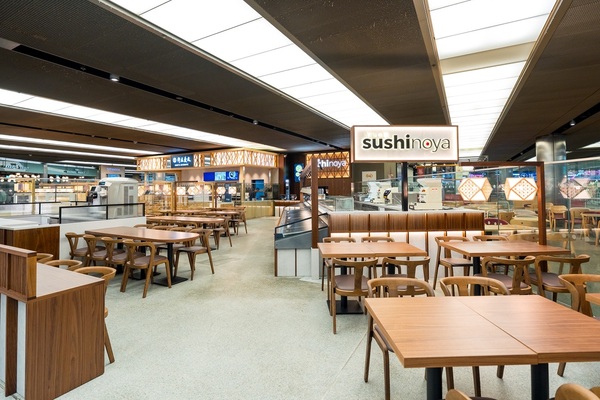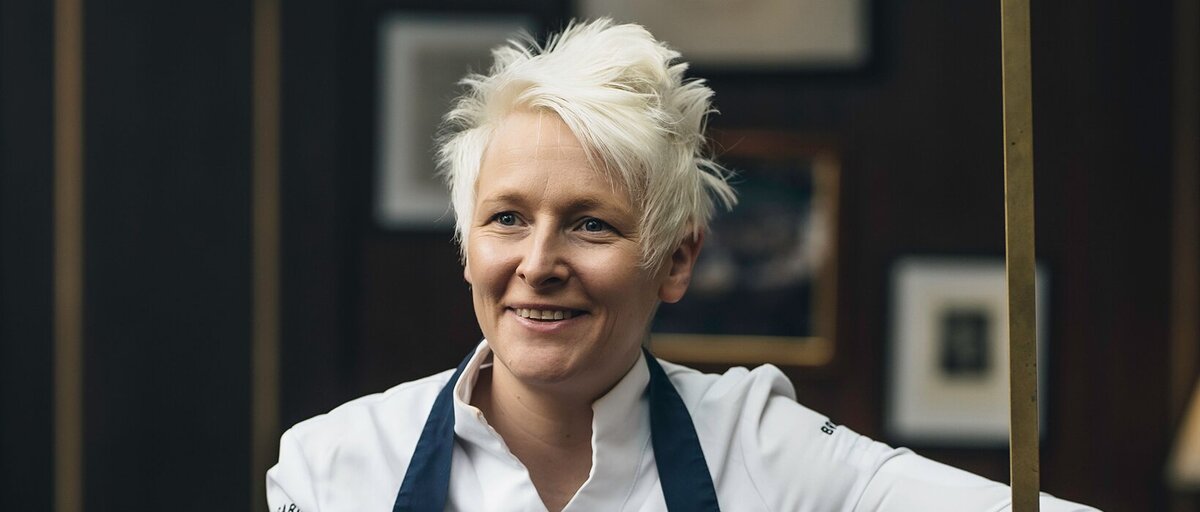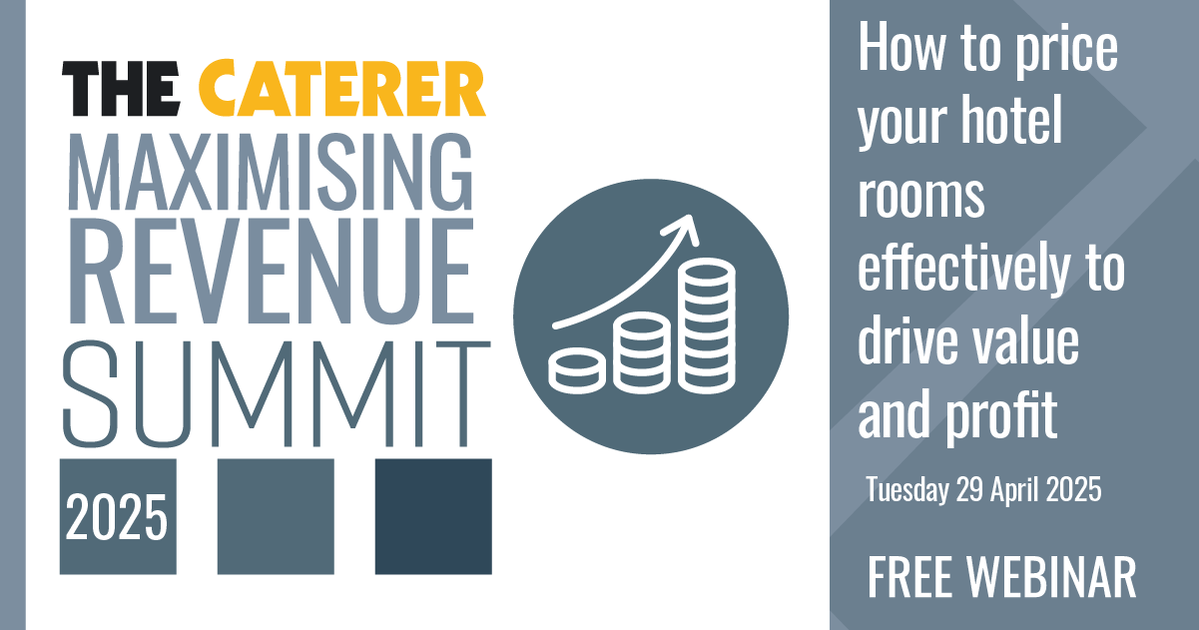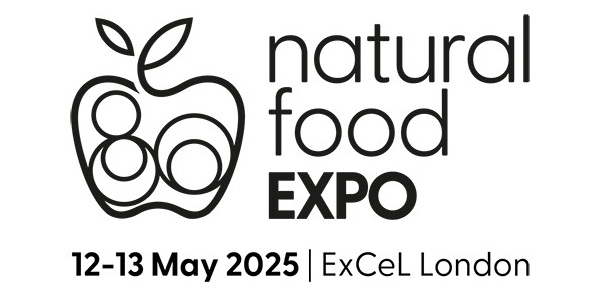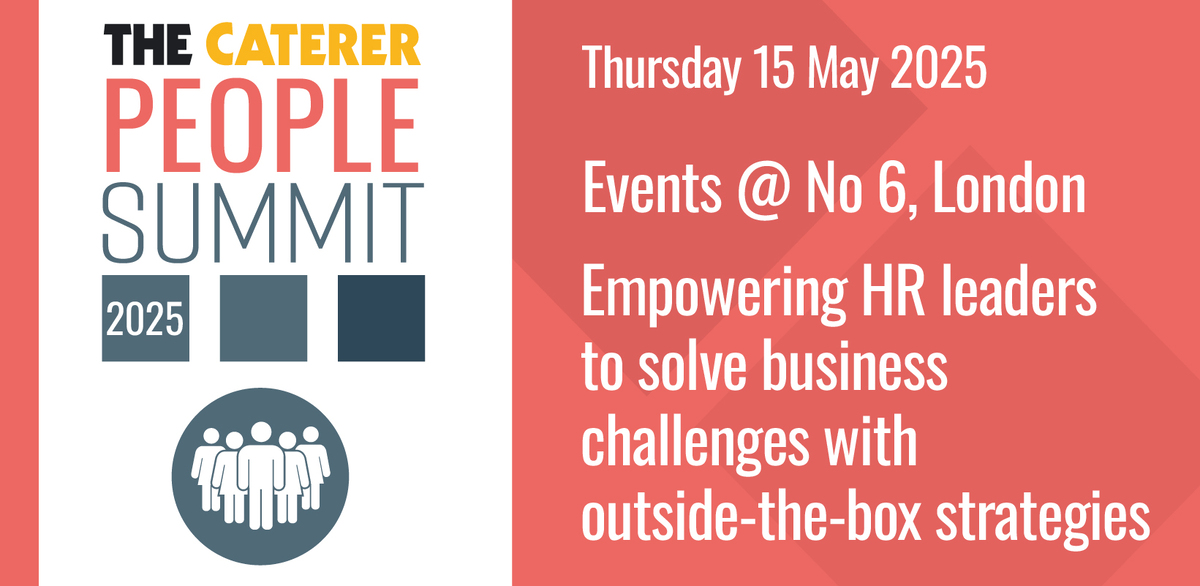Better business: The Old Plow at Speen
This week The Old Plow at Speen, Buckinghamshire
Why? Open for 25 years and listed in the Michelin Guide
Need to know
It may be set within three-quarters of an acre of outstanding beauty, but this corner of Buckinghamshire is unremittingly London. Where the food's concerned, at least.
Co-owner and head chef Malcolm Cowan has impressive credentials. He trained in Switzerland and worked on the old Queen Elizabeth ship at just 18 years of age before becoming sous chef at the Ritz, head chef at the Westbury hotel, and then executive chef at the (now closed) London site of Maxim's de Paris. He taught Ainsley Harriott, and his peers included Richard Shepherd and Brian Turner.
It's unsurprising then, that when he upped sticks to the countryside in 1988 with his wife Olivia, he was clear that a geographical downsizing wouldn't equal a drop in quality. The Old Plow opened in the same year and is now both a relaxed bistro and a more formal restaurant. Its focus on seafood, fresh ingredients and regularly changing specials meant it has been listed in the Michelin Guide ever since.
It has a host of celebrity fans: Mary Berry has lauded it as "her favourite restaurant", actor Jeremy Irons says it has "the best food within an hour of London" and a
frequent visitor is Jay Kay from the band Jamiroquai.
Suppliers As all his most trusted city suppliers also deliver to the Thames Valley, Cowan is as meticulous about sourcing, pricing and standards as he was all those years ago in London. Suppliers reel off Cowan's tongue like those of old friends: Allens of Mayfair, produce supplier Ritter Courivaud, the Berkmann wine cellars near King's Cross, and fish from Channel Fisheries and Kingfisher Brixham.
"If I get turbot, it will go on a special until it's sold out," he says. "We get the best fish from Brixham: monkfish, seabass, lobster with saffron and brandy sauce…"
The menu
And although it's not all lobster (there is also a pretty mean fish, chips and mushy peas) the cuisine is traditional, painstaking, and draws on traditional French training.
He does concede that the mushy peas might not be quite so Gallic, and he has also added a touch of Asian flair to the menu, through spiced dips, sauces and chutneys, as a nod to his childhood in Singapore and Hong Kong.
People come from miles around to enjoy their favourites: âWe do a Provençal fish soup as a starter,â he says, âand people drive 20-30 miles just for that. I couldnât take it off the menu â" weâd have a riot.â
The importance of marketing
This awareness of what customers want is also representative of the restaurantâs approach to marketing. Each season sees a new promotion â" a winter warmer menu or a summer platter option â" where every main is priced at £8.95 and a starter is about £5.95. Guests can fill in a promotional invite on the Plowâs website, with their email address, and they will be alerted to any new menus or offers. Itâs simple, but it works.
âItâs like a French prix fixe menu,â says Cowan. âIt gives us flexibility and good stock turnover. People know they donât have to spend £20 on a main course â" they can get one for £8. Itâs clever marketing as it keeps people informed and gets them coming in.â
A new website spearheaded by Olivia and a database of 3,000 addresses is evidence of the Cowansâ considerable business nous. Although they are happy with the 80% repeat custom, experience has taught them that new customers are always welcome, from pre-booked guests to walk-ins.
âIf we havenât got a table, weâll build one out the back!â says Cowan. The chef also takes all the photos of the premises for the website, and considers visual online marketing to be the future. âWe wanted to use the website as our tool, rather than taking our adverts elsewhere. You can bring anything you want to the people as soon as they go online,â he says.
He is especially excited about the prospect of video, which he believes will increase footfall and interest. Always with one eye on London, Cowan notes that when Oblix, Reiner Beckerâs restaurant in the Shard, posted professional videos online, bookings soared.
Refusing to give up
But such innovation is only possible thanks to rock-solid foundations. As one might expect for a place thatâs been open for a quarter of a century, the business has weathered some considerable economic storms.
Hit by recession just two years after opening and again in 2008, the business could have crumbled in less competent hands. In 1990, for example, interest rates skyrocketed and the building suddenly cost £3,000 more a month than before.
âThat was Black Monday,â Cowan says. âI canât pretend it hasnât been tough. Itâs harder now to make a profit than it was 25 years ago.â
And yet his characteristic determination comes through. âItâs all about bums on seats â" thereâs no use crying. It was the roof over our heads and our childrenâs heads, so we just got on with it.â
The couple cut costs, closed the then-pub and reopened it as a bistro, finding they could make more money from food than from a couple of pints of bitter and a packet of crisps.
And even now, when VAT is at 20%, the pound is low against the Euro, the government is taxing, utility costs are up and people are spending less, Cowan still says the secret is simply good housekeeping.
Ultimately, he says, success is about sticking to what you know, moving past problems and refusing to deviate. He laughs. âWhen youâve worked for top hotels and restaurants, this little place seems a doddle.â
Malcolm Cowan's revelations
Favourite restaurant Zuma or La Petite Maison, London
Favourite hotel The Connaught or our boat in Spain
What book has inspired you? A Life with Food by Peter Langan
Whatâs your business motto? Itâs tough at the top, but even worse at the bottom
Who do you admire in the industry? Rick Stein, Richard Shepherd and Brian Turner
If you werenât a chef, what would you be? A photographer
Spotlight on longevity
The Old Plow may have survived three recessions and be a permanent fixture in the Michelin Guide, but Malcolm Cowan says the most recent downturn has been âthe longest and the deepestâ.
He is steadfast that a few key tenets can help keep a business afloat. He advocates keeping staff numbers low and reducing turnover â" for example, one chef has
been with him for 13 years; another for 11.
âYou want staff who know how you think, even when youâre not in the kitchen,â he says. âWe donât have a separate sommelier as we canât afford one.â
He also advises reducing waste, looking after produce through measures such as careful buying, keeping fridges well-maintained and never forgetting your GP.
As he says: âIn the West End, if you didnât make your GP, you got the tin-tack [sack], easy as that.â
Facts and stats
Year it first opened 1988
Gross profit 64%
Average spend £30-£50
Covers in the bistro 25
Covers in the restaurant 35
Average number of daily specials 8


